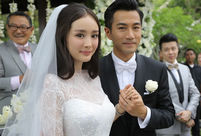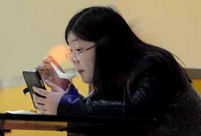 Shocking moments when PLA's weapons open fire
Shocking moments when PLA's weapons open fire Famous Lanzhou beef noodles
Famous Lanzhou beef noodles Armed Police hold anti-terrorism drill in SE China's Xiamen
Armed Police hold anti-terrorism drill in SE China's Xiamen Harbin Int'l Ice and Snow Festival opens
Harbin Int'l Ice and Snow Festival opens 'Jin' named the word of the year by cross-strait netizens
'Jin' named the word of the year by cross-strait netizens Chinese scientific expedition goes to build new Antarctica station
Chinese scientific expedition goes to build new Antarctica station
 Chinese naval escort fleet conducts replenishment in Indian Ocean
Chinese naval escort fleet conducts replenishment in Indian Ocean 17th joint patrol of Mekong River to start
17th joint patrol of Mekong River to start China's moon rover, lander photograph each other
China's moon rover, lander photograph each otherBEIJING, Jan. 13 -- Japanese Prime Minister Shinzo Abe's willingness to seek dialogue with China and the Republic of Korea (ROK) went against his act of visiting a controversial war-linked shrine and raising defense spending, Chinese experts have said.
Last month, Abe visited the controversial Yasukuni Shrine that honors Japan's war dead, including 14 class-A war criminals of WWII.
The criminals include former prime minister Hideki Tojo, who launched the attack on Pearl Harbor and started the war in the Pacific that cost millions of lives. He was also a commander of the Nanking massacre in China in which some 300,000 people were killed.
Abe said at a press conference last week that he wanted to explain the intention of his visit directly to China and the ROK, and that the door to dialogue is open.
"Abe's dialogue request with China and the ROK was nothing but to win the support of domestic public opinion and gain the initiative in international diplomacy," said Liu Jiangyong, vice head of the Institute of Modern International Relations of Beijing-based Tsinghua University.
Abe's visit came on the first anniversary of him assuming office. It was also the first visit by a serving Japanese prime minister since Junichiro Koizumi went to the shrine on Aug. 15, 2006, the day commemorating Japan's unconditional surrender to Allied Forces in 1945.
"On the one hand, Abe shows initiative to seek dialogue in order to cover up his dangerous acts, on the other hand, he stresses enhanced military presence via raising the military budget," Liu said.
In December, the Japanese cabinet approved a record-high 95.88 trillion yen (about 926.87 billion U.S. dollars) budget for the fiscal year. Defense spending was up 2.8 percent, marking the second straight year of rises.
"Abe is on a course of building Japan into a country capable of fighting that walks away from the path of peaceful development," said Gao Hong, vice head of the Institute of Japanese Studies with the Chinese Academy of Social Sciences.
Gao added that Abe's rhetoric on dialogue is deceptive, and his thoughts are to strengthen Japan's military.
Chinese ambassadors to a number of countries have voiced their anger.
"China, together with the international community, will resolutely prevent Japanese right-wing forces turning back the wheel of history," Cheng Yonghua, Chinese ambassador to Japan, was quoted as saying in a Monday article in the People's Daily, the flagship newspaper of the Communist Party of China.
Cheng added that China will work together with the international community to safeguard international order.
The dispute over Abe's visit to the Yasukuni Shrine is about more than symbolism because it reveals his real intention for Japan's future and casts doubt upon his willingness to build an atmosphere of trust, respect and equality in East Asia, said Cui Tiankai, Chinese Ambassador to the United States, in an opinion piece published Friday on The Washington Post website.
"There might be the possibility of relations easing between China and Japan, but only if Abe scraps his position on history and comes back to the table," Gao Hong added.
 In photos: Ten 'tuhao' devices in 2013
In photos: Ten 'tuhao' devices in 2013 College students saved from an ice hole by brave citizens
College students saved from an ice hole by brave citizens Gallery: Top 10 box office hits in 2013
Gallery: Top 10 box office hits in 2013 Beautiful churches around the world
Beautiful churches around the world Yang Mi, Hawick Lau hold wedding in Bali
Yang Mi, Hawick Lau hold wedding in Bali 'Phubbing' people seen everywhere
'Phubbing' people seen everywhere World's biggest snack shop in China
World's biggest snack shop in China Shocking moments when PLA's weapons open fire
Shocking moments when PLA's weapons open fire World's fastest train CRH380A assembled in E China
World's fastest train CRH380A assembled in E China Successful first 300-meter saturation dive
Successful first 300-meter saturation dive Fire burns down ancient town in Shangri-la
Fire burns down ancient town in Shangri-la Luxurious car adorned with coins
Luxurious car adorned with coins Female Chinese soldiers' 'brutal' training
Female Chinese soldiers' 'brutal' training Undie Run competition held in Nanjing
Undie Run competition held in Nanjing Advanced Chinese weapons that stepped into spotlight in 2013
Advanced Chinese weapons that stepped into spotlight in 2013Day|Week|Month